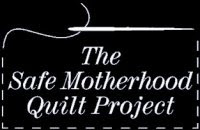The very next day after the refreshing revision to ACOG's VBAC guidelines were released, my new favorite Congresswoman Lucille Roybal-Allard (D-California) introduced the MOMS (Maximizing Optimal Maternity Services) for the 21st Century Act on the House floor. Special thanks to Kathy Castor (D-Florida) for co-signing the legislation (Ms. Castor has been vocal in our own state about the correlation between our high c-section rate and premature birth). This has been a very exciting week along the path to healthier American birth! The following is from Congresswoman Roybal-Allard's office, describing her reason for the introduction and what she hopes it will achieve (including accountability for data collection, interdisciplinary maternity care including midwives, pregnancy and labor support including doulas and nutrition education, and more).
The United States spends significantly more on childbirth than any other industrialized country, but ranks far behind almost all developed countries in healthy child birth results for both mothers and babies. To address this national tragedy, Congresswoman Lucille Roybal-Allard introduced the Maximizing Optimal Maternity Services for the 21st Century Act which places a national focus on evidence-based maternity care practices to help achieve the best possible maternity outcomes for mothers and babies.
“Each year, more than 4 million women give birth in the United States. Caring for them and their babies plays a major role in our nation’s escalating health care costs. In fact, hospitalization related to pregnancy and childbirth costs approximately $86 billion each year, the highest hospitalization costs in any area of health care. Tragically, in spite of all the money we spend, the United States continues to rank far behind nearly all developed countries in perinatal outcomes, with childbirth continuing to present significant risks for mothers and babies, particularly in communities of color,” said Congresswoman Lucille Roybal-Allard, who co-founded the Congressional Study Group on Public Health and chairs the Congressional Hispanic Task Force on Health. “The MOMS for the 21st Century Act, which I introduced, addresses these disparities in our nation’s maternity health care system by making key reforms to improve the health and well-being of mothers and their babies in our country while bringing down maternity care costs.”
The Maximizing Optimal Maternity Services for the 21st Century Act (HR 5807) creates a national focus on maternity care by establishing an Interagency Coordinating Committee charged with promoting medical practices proven to provide the healthiest results for mothers and babies. The legislation authorizes a public awareness media campaign to educate the public about the best-proven maternity care practices. The legislation expands federal research on best maternity practices. The bill also authorizes data collection to pinpoint specific geographic areas of the country that lack maternity care providers.
Finally, the measure puts in place a concerted effort to create a more culturally diverse and interdisciplinary maternity care workforce. It establishes loan repayment programs for providers in maternity care shortage areas. It authorizes grant programs for maternity professional organizations to recruit and retain minority providers. It also calls for the development of core curricula across maternity professional disciplines to better ensure that providers are better trained and able to inform patients about all of their maternity care options.
“The MOMS for the 21st Century Act makes overdue reforms to our nation’s maternity care system to better ensure that providers and mothers have the best information available when making serious maternity care decisions,” Congresswoman Lucille Roybal-Allard said. “The fact is we have a maternity care system in the United States that has not traditionally adhered to evidenced-based practices. For example, there is widespread over use in our country of maternity practices, such as elective Cesarean sections and scheduled inductions. These procedures are beneficial and needed only in limited situations. When used routinely and indiscriminately and without medical necessity, these and other practices expose women and infants to unnecessary risks at high cost. On the other hand, credible science-based research tells us non-invasive maternity practices such as prenatal smoking cessation programs and centering of pregnancy group prenatal care, produce considerable improvement in maternity outcomes, such as healthier moms and babies. Yet these cost-effective evidence-based practices, which have no detrimental side effects, are significantly underused in our country.”
A longtime advocate on behalf of mothers, infants and children, the congresswoman has been honored by the March of Dimes and the Association of Maternal and Child Health Programs. Both awards recognize the congresswoman’s authorship of the Newborn Screening Saves Lives Act, which was signed into law in 2008. Enactment of the Newborn Screening Saves Lives Act established national newborn screening guidelines intended to make comprehensive newborn screening widely available throughout the country. The law also provides federal funding to educate parents and health care professionals about the importance of newborn screening, and improves the systems for follow-up care for infants identified with an illness through the newborn screening tests. In addition, the law requires the Centers for Disease Control and Prevention to ensure the quality of laboratories involved in newborn screening, and establishes a system for collecting and analyzing data that will help researchers develop better detection, prevention and treatment strategies.
Amnesty International Executive Director Larry Cox issued the following statement in support of the "MOMS for the 21st Century Act," introduced Wednesday evening in the House of Representatives by Rep. Lucille Roybal-Allard, (D-CA):
"Amnesty International commends Rep. Roybal-Allard for her commitment to improving the outcomes and disparities in maternal health in the United States. Access to good quality maternal health care is a right, not a privilege. It is shameful that as a nation we have neglected this right for so many women for so long. Amnesty International is grateful for Rep. Roybal-Allard's leadership and her recognition of the terrible human cost of this failure. We stand behind this significant legislative effort to ensure that all women have access to the maternal health care they need.
"The "MOMS for the 21st Century Act," if passed, will require the U.S. government to live up to its obligation to address this problem by developing a coordinated approach to maternal care that will improve women's access to quality, evidence-based care and will begin to address maternal health disparities. This is a first step to reducing the needless loss of women's lives that tragically affect so many families in the United States and preventing the complications that have risen steadily for decades.




















No comments:
Post a Comment